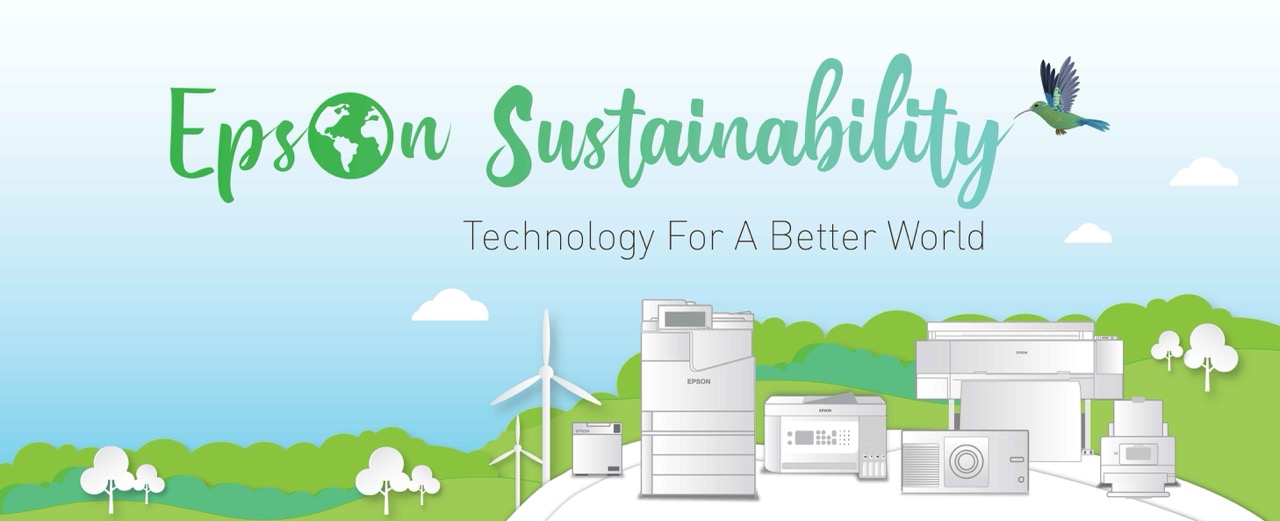As the global focus on Environmental, Social, and Governance (ESG) principles intensifies, companies are increasingly expected to take tangible steps toward sustainability. Epson, a global technology company, is reinforcing its leadership in sustainable innovation through groundbreaking initiatives aimed at achieving carbon negativity and eliminating reliance on underground resources by 2050. The company is taking bold steps to redefine industry standards, integrating environmental responsibility into its core business operations.
Major Sustainability Goals and Investments
Epson has committed 100 billion yen (approximately KES 85 billion) to significantly reducing greenhouse gas (GHG) emissions across its supply chain. The company aims to cut Scope 1 and 2 emissions by 55% by 2030, with the ultimate goal of full elimination. As part of this commitment, Epson has already achieved 100% renewable electricity usage across all its global operations by the end of 2023—making it the first Japanese manufacturer to do so.
According to Mukesh Bector, Epson’s Regional Head for East and West Africa, the company’s approach is about more than meeting industry standards—it is about setting new benchmarks. He asserts that businesses must take bold steps to address climate change, and Epson’s transition to renewable energy reflects its broader sustainability vision.
Sustainable Innovation in Manufacturing
Epson’s commitment to sustainability is deeply embedded in its manufacturing processes. The company has developed automation technology with robotics and force sensors to optimize production while maintaining high quality. This approach not only minimizes manual labor but also enhances operational efficiency.
Another critical advancement is the integration of vibration sensors, which help businesses optimize equipment performance and streamline maintenance. This innovation is particularly valuable in addressing the global shortage of skilled factory workers by automating certain aspects of equipment monitoring and upkeep.
“Our innovations in manufacturing ensure that we not only reduce waste but also enhance efficiency. By integrating smart technology into our production lines, we are moving towards a more sustainable future while maintaining high-quality standards,” says Bector.
Empowering Education Through Technology
Beyond environmental sustainability, Epson is also making strides in social impact initiatives, particularly in education. Recognizing that millions of children lack access to quality learning resources, the company has developed portable projectors that facilitate mobile learning programs in underserved communities. These projectors function even in off-grid locations, enabling digital learning in areas without electricity.
“Education is a fundamental right, yet millions of children lack access to quality learning resources. Our portable projectors are designed to make education more inclusive, empowering students with the knowledge they need to shape their futures,” Bector explains.
Circular Economy and Sustainable Materials
Epson’s commitment to sustainability extends beyond energy consumption to material innovation. The company is a leader in Dry Fiber Technology, a proprietary system that enables the recycling of hard-to-process materials, including functional textiles.
Additionally, Epson is investing in membrane separation technology for CO₂ capture and recovery, a critical step toward lowering carbon emissions across various industries. By integrating these innovations, the company is pushing for a circular economy, where materials are continuously reused rather than discarded.
“To truly make an impact, we need to rethink how we use resources. By developing technologies that promote a circular economy, we can minimize waste, reuse materials efficiently, and move closer to our goal of eliminating reliance on underground resources,” says Bector.
Continued Drive for Sustainability
Epson continues to expand its sustainability efforts by revolutionizing its energy infrastructure. The company has built its first biomass power plant within its facilities as part of its broader dedication to renewable energy. Additionally, Epson is working closely with suppliers to help them transition to environmentally friendly business models, supporting sustainable delivery systems and renewable energy adoption.
A Blueprint for a Sustainable Future
Epson’s long-term sustainability vision is built on a multi-faceted approach—integrating sustainability into manufacturing, education, and resource management. The company demonstrates that innovation and environmental stewardship can go hand in hand, challenging other industry players to step up their ESG commitments.
“As a company, we do not just set goals; we take action to achieve them. We remain committed to creating a greener, more sustainable world for future generations,” Bector concludes.






